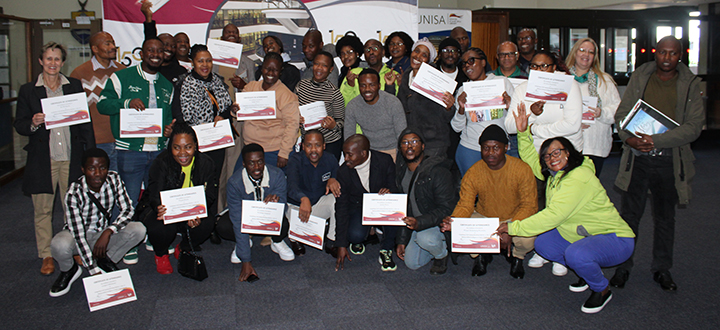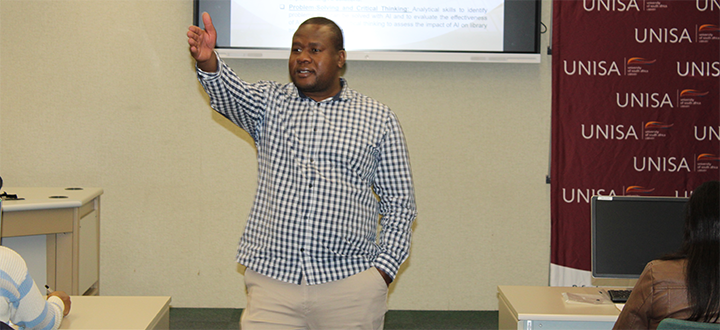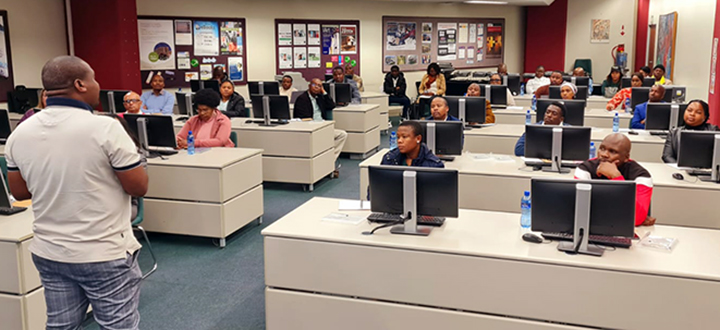
In collaboration with the Department of Information Sciences, Unisa Library and Information Services recently held a transformative three-day workshop focused on advancing public libraries through cutting-edge technologies. The event provided a crucial platform for exploring the role of artificial intelligence (AI) in enhancing library and information services.

Library and information practitioners
Dr Lesiba Ledwaba, Acting Director of Library Systems and Support Services, warmly welcomed library partners to the workshop. In his address, he emphasised the importance of collaboration among libraries, noting that they all serve the same clientele and can significantly benefit from shared knowledge and resources.

Dr Mashilo Modiba
The workshop was facilitated by Dr Mashilo Modiba, a Senior Lecturer at Unisa’s Department of Information Science. The event aimed to empower public library professionals with the knowledge and tools essential for navigating the evolving digital landscape of the fifth industrial revolution (5IR). It highlighted the transformative potential of AI to revolutionise user experiences, operational efficiency, and service delivery across diverse communities of library patrons.
In parallel discussions, integrating AI-powered systems and robotic assistants was emphasised as pivotal in modernising library operations. These technologies enable 24/7 assistance through virtual librarians and chatbots, offering instant responses and personalised navigation through extensive digital collections. By automating tasks like book shelving and data analysis, robotic assistants free up library staff to engage more deeply with library users, optimising resource allocation and improving overall service quality.

Workshop attendees
Modiba highlighted that while the implementation of AI and robotics presents challenges, such as data privacy concerns and the need for significant financial investments, the benefits are substantial. Libraries embracing these technologies report cost savings, heightened efficiency, and expanded service capabilities, transforming traditional library services into dynamic, interactive hubs of knowledge and community engagement.
Moreover, the workshop delved into the potential of augmented reality (AR) and virtual reality (VR) technologies to enhance user engagement and accessibility in libraries. These tools create immersive learning environments where patrons can explore historical sites, scientific concepts, and interactive exhibits, bridging physical and digital learning experiences.
The workshop provided an invaluable platform for educational interactions among librarians. Participants were awarded certificates for successfully completing the workshop, emerging equipped with the expertise to lead their libraries into a future where AI, robotics, AR, and VR technologies play integral roles in fostering lifelong learning and equitable access to information. The workshop marked a significant step forward in preparing libraries to harness the full potential of emerging technologies amidst the ongoing digital revolution.
*By Itumeleng Mpete, Library and Information Services
0 Comments.